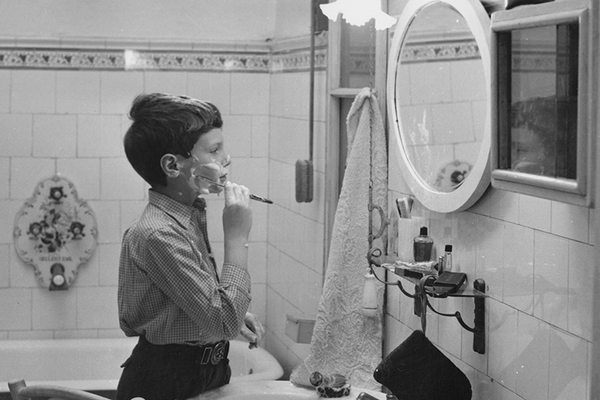Père
Apa
de István Szabó , Hongrie , 1966
In this, the second of the three films often called the ‘generational trilogy’ (The Age of Daydreaming, Father, Love Film), we trace the coming of age tribulations of a boy left without a father. The young hero evokes and embellishes memories of his father who died in 1945. The first three films by István Szabó are based on his own experiences as a child and youth, yet they have resonance for an entire generation, showing what it was like to grow up without a father in the 1940s and 50s.
Information on film rights and desired prospects:
Film representative: Clara Giruzzi
Rights holders: National Film Institute Hungary - Film Archive
Available rights: Available worldwide and on all media, except: Brazil (all rights sold), Switzerland (commercial and non-commercial film rights sold), Bulgaria (TV and VOD sold)
Information on current agreements:
- Type: Distribution all rights
- Structure: Filmicca
- Country: Brésil
- Type: theatrical distribution and non-comm
- Structure: The Cinémathèque Suisse
- Country: Switzerland
- Type: TV and VOD Distribution
- Structure: Beta Film
- Country: Bulgarie
Priority needs for the film: International sales, new contacts, distribution
 © Collection Positif Michel Ciment
© Collection Positif Michel Ciment
István Szabó was born in 1938 in Budapest into a Jewish family. During the winter of 1944-1945, before the liberation of the city, he was hidden in a cellar for two months. In 1956, he enrolled at the Film Academy, one of only ten students selected from among 700 applicants. After graduating, he began his career at the renowned Béla Balázs studio, a collaborative experimental workshop run by the resident filmmakers themselves. There he made his first short films, which attracted attention at festivals. His first feature film, The Age of Illusions (1965), peppered with references to François Truffaut and the French New Wave, made a strong impression and won an award at the Locarno Film Festival.
The young filmmaker was 28 when he made Father, his second feature film. The film is partly autobiographical: like Tako, Szabó lost his surgeon father as a child, and all he has left of him are fragments of memories and a few objects that are used in the film. However, explaining that more than half of Hungarians his age lost their fathers as children, Father is, for Szabó, the “autobiography of a generation”: "This little boy, who elevates the memory of his father, who died during the final days of the war, to the status of a myth, [...] resembles all of us who attached our real desires and aspirations to figures we had turned into mythical characters during the ten years following the war. " (István Szabó, in Cinq cinéastes hongrois, István Zsugán, Cahiers d'information, n.d.)
In this intimate chronicle, a child constructs a father figure tailored to his needs. To build his myth, he has only vague memories, a few objects he fetishizes, and a boundless imagination. His father thus becomes a hero fighting against the Gestapo or a charismatic leader whose name is chanted by crowds. As a young adult in a country in turmoil (the Hungarian Revolution of 1956), Tako must emancipate himself from this omnipresent father figure and finally evolve on his own.
Father (Apa)
Hungary, 1966, 1h31, black and white, 1.37 format
Directed and screenplay by István Szabó
Cinematography by Sándor Sára
Musique János Gonda
Montage János Rózsa
Set design by Károly Molnár
Costumes by Erzsébet Mialkovszky
Production: Mafilm Stúdió 3
Cast: Miklós Gábor (le père), Klári Tolnay (la mère), András Bálint (le fils), Dani Erdély (le fils, enfant), Kati Sólyom (Anni)
Released in Hungary December 8 1966
Presentation at the Locarno Film Festival 25 July 1967
Released in France in March/April 1969
Restauration 4K, in 2018, by the National Film Institute Hungary and supervised by István Szabó. The 4K digitization funded from the donation of Mrs. and Mr. Kučera, was carried out in 2025 in UPP and Soundsquare studios by the Karlovy Vary International Film Festival in collaboration with the Národní filmový archiv, Prague and the Czech Audiovisual Fund. The sources for the digitization were the original image and sound negative preserved by the Národní filmový archiv, Prague.The sources for the digitization were the original image and sound negative preserved by the Národní filmový archiv, Prague.
Partner: Académie hongroise des arts
Collaborating partner: Hungarian Filmmakers' Association
Color grading supervised by Balázs Sára DP
The film has been awarded the Lumière Classics label, which recognizes the best restorations of the year.
Thanks to the distributor National Film Institute Hungary
Film awarded the label




